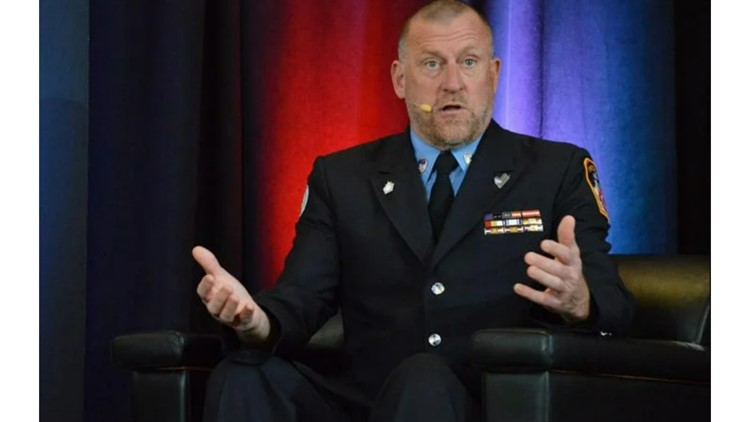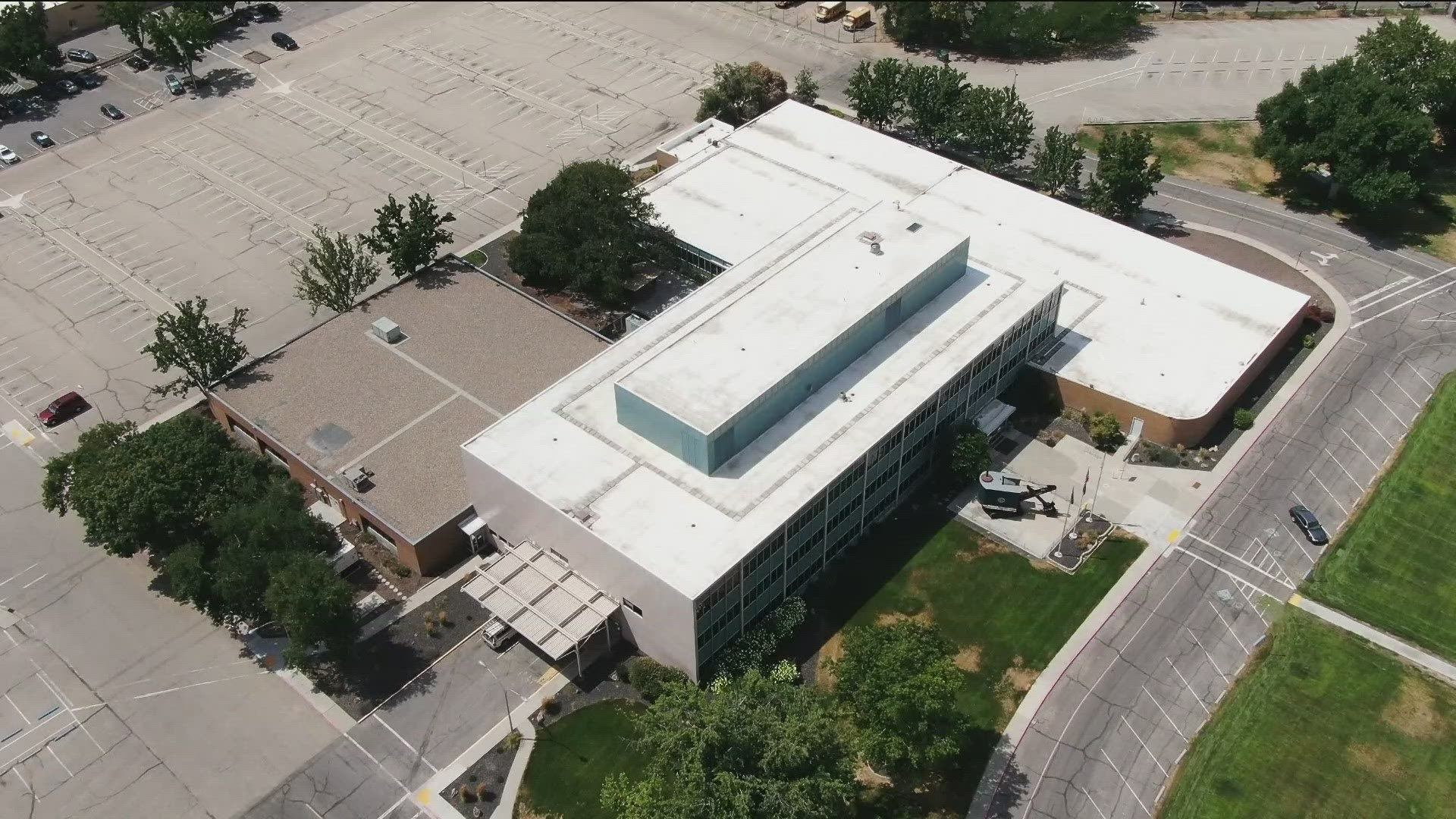BOISE, Idaho —
This story originally appeared in the Idaho Press.
Tim Brown remembers Sept. 11, 2001, like it was yesterday.
“The whole story is not just about the heroes,” Brown said. “It’s also the horrors of the day, because I saw some things that no human eyes should ever see.”
Brown, a retired New York City firefighter, spoke about his experience surviving 9/11 at a Mission43 event at the Boise Train Depot last week. The event was a precursor to Sunday’s anniversary of the Sept. 11 terrorist attacks that targeted the World Trade Center in New York City, and The Pentagon, U.S. Capitol and White House in Washington, D.C.
Brown lost nearly 100 of his friends on that fateful day and continues to tell his story, specifically to support military and first responder charities.
“I lost all my male mentors — some of the greatest men I ever knew,” Brown said, choking up. “And America is going to be OK because of men and women like Dan.”
Dan Nelson, director of Mission43, served in Afghanistan. The Sept. 11 attacks were the seminal event for Nelson, shaping his adult life and guiding his decision to serve. To Brown, meeting “American heroes” like Nelson gives him meaning and purpose.
“There’s nobody that has experienced something to the magnitude that Tim and his brothers have, really, it’s impossible to compare,” Nelson said. “And it’s impossible, I think, for most normal people to even conceptualize what happened on September 11, 2001. And the magnitude of the violence really, is something that I hope is not lost in many Americans.”
After 21 years, Nelson said he can feel people’s attention towards to the event starting to drift. It’s important to him to have Brown speak to people in Boise, reminding them of the tragedy that took place in New York.
Before 9/11, Brown had “traded in his fire helmet for a tie” and worked for New York City Mayor Rudolph Giuliani. So when the first tower was hit, it was Brown’s job to support the incident commander. Like everyone else, Brown assumed there had been a terrible accident — the pilot had a heart attack, it was a helicopter that collided with the tower, etc. — never imagining the horrors to come.
“Everything was on fire,” Brown said. “You could see all the papers from the office buildings floating and fluttering down.”
Brown watched office workers helping each other down the escalator out of the north tower and then saw his friend, Chris Blackwell. A Bronx firefighter, Blackwell was unshaven and had a burnt helmet that sat crooked on his head.
“He said ‘Timmy, this is really bad,’” Brown said. “He knew it. It was my job to stay in the lobby and help the command post, it was his job to go up and save people’s lives.”
And that’s exactly what Blackwell did. He gave his life to save people in the burning tower. Brown said Blackwell was one of the first examples he saw of “the greatest love” that morning, but he wouldn’t be the last.
Far above the lobby of the north tower, 10 acres of buildings were on fire. Brown said at the time, they didn’t think the towers would collapse.
Brown’s friend Mike Lynch died while saving people trapped in an elevator in the south tower lobby. The elevator had free fallen 70 floors, Brown said, and people were struggling to manually open the doors. According to Brown, Lynch saved three women before the tower came down.
“I actually watched the north tower collapse where I had been just an hour-and-a-half before and seeing my friends in the lobby,” Brown said. “When I turned around and I saw the antenna shift to the side and then go down I knew many, many of my friends were in there.”
Brown didn’t sleep that night. In the coming days, he would ask the firefighters he saw about a number of his friends, slowly discovering the magnitude of his loss. In one morning, Brown lost most of them.
“Every time I heard a name, my knees would buckle and I felt like I had a sledgehammer in the gut and my heart would break again,” Brown said. “It was almost like I wanted people to stop telling me names.”
Brown eventually had to decide which funerals he wouldn’t be able to attend because there were too many other services that day.
“I was in a really dark place in 2005 and 2006,” Brown said. “When you’re in that dark place you can never see that there’s going to be light.”
Finding a therapist saved him from the darkness, Brown said. He learned to compartmentalize his grief, taking it in one day at a time.
In 2002, Brown began working for the federal government and often flew to Washington and back to New York. On those flights, Brown started a grieving ritual. He always sat in a window seat and pulled the shade down, resting his head against it so no one could see his face. He then pulled on noise canceling headphones playing Andrea Bocelli music and sobbed for an hour.
Therapy and those plane rides saved his life, Brown said.
According to Brown, every day 22 veterans take their own lives.
“We’re failing to take care of this problem,” Brown said. “But in Idaho, the Albertsons Family Foundation and Mission43 are getting on top of that.”
For Brown and Nelson, it’s important for younger generations to never forget the tragedy of 9/11 and to take care of service members in their communities.
“Mission43 saved me and really changed the trajectory of my life, well before I was employed by them,” Nelson said.
Based in Boise, Mission43 was created to help anyone who has served in the military and their spouses succeed in Idaho. It’s unique, Nelson said, because it’s fully funded by the Albertsons Family Foundation.
“Idaho is a lucky state,” Brown said. “Idaho cares for its combat veterans.”
This story originally appeared in the Idaho Press. Read more at IdahoPress.com
Watch more Local News:
See the latest news from around the Treasure Valley and the Gem State in our YouTube playlist:
Download the KTVB mobile app to get breaking news, weather and important stories at your fingertips.



